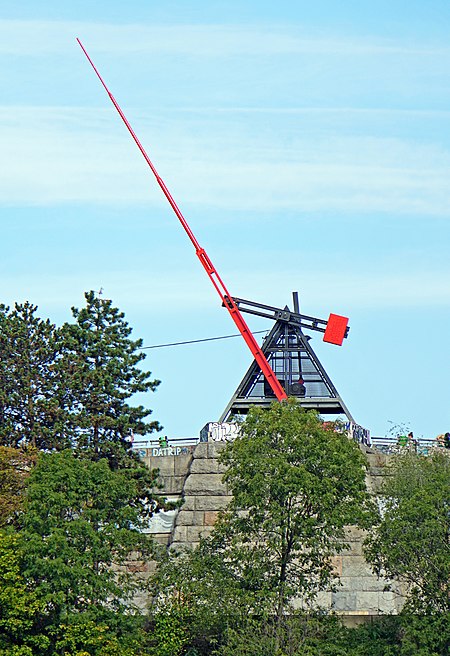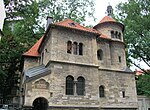The Prague Spring International Music Festival (Czech: Mezinárodní hudební festival Pražské jaro, commonly Czech: Pražské jaro, Prague Spring) is a permanent showcase for outstanding performing artists, symphony orchestras and chamber music ensembles of the world.
The first festival was held under the patronage of Czechoslovak president Edvard Beneš, and its organizing committee was made up of important figures in Czech musical life. In that year, 1946, the Czech Philharmonic Orchestra was celebrating its fiftieth anniversary and was therefore given the highest accolade: to appear in all the orchestral concerts. The project was initiated by Rafael Kubelík, chief conductor of the orchestra at the time. Such musicians as Karel Ančerl, Leonard Bernstein, Sir Adrian Boult, Rudolf Firkušný, Jaroslav Krombholc, Rafael Kubelík, Moura Lympany, Yevgeny Mravinsky, Charles Münch, Ginette Neveu, Jarmila Novotná, Lev Oborin, David Oistrakh, Ken-Ichiro Kobayashi and Jan Panenka have won enthusiastic ovations on the Prague Spring Festival stage. Since 1952, the festival has opened on 12 May — the anniversary of the death of Bedřich Smetana — with his cycle of symphonic poems Má vlast (My Country), and it used to close (until 2003) with Ludwig van Beethoven's Symphony No. 9.The festival commemorates important musical anniversaries by including works by the composers concerned on its programmes, and presents Czech as well as world premieres of compositions by contemporary authors. Artists and orchestras of the highest quality are invited to perform here. Some of those who have appeared at the festival include Sviatoslav Richter, Lorin Maazel, Herbert von Karajan, Mstislav Rostropovich, Julian Lloyd Webber, Boris Pergamenschikow, Lucia Popp, Kim Borg, Sir Colin Davis, Maurice André, Dmitry Sitkovetsky, Leonid Kogan, Paul Klecki, Gustav Leonhardt, Anne-Sophie Mutter, Giovanni Bellucci, Alfred Brendel, Heinrich Schiff, Leopold Stokowski, Arthur Honegger, Arthur Rubinstein and Gennady Rozhdestvensky.
Prague Spring's traditional venue is the Rudolfinum concert hall, a venerable neo-renaissance building with an excellent auditorium, situated on the bank of the Vltava River. It is complemented by Prague's ornate Municipal House (Obecní dům), which has a larger seating capacity.The Prague Spring has a particular focus on supporting younger performers. The Prague Spring International Music Competition was established just one year after the festival itself and is held each year in various instrumental sections. The list of past winners of competition includes Mstislav Rostropovich, Saša Večtomov, Natalia Gutman, James Galway and Maurice Bourgue.












